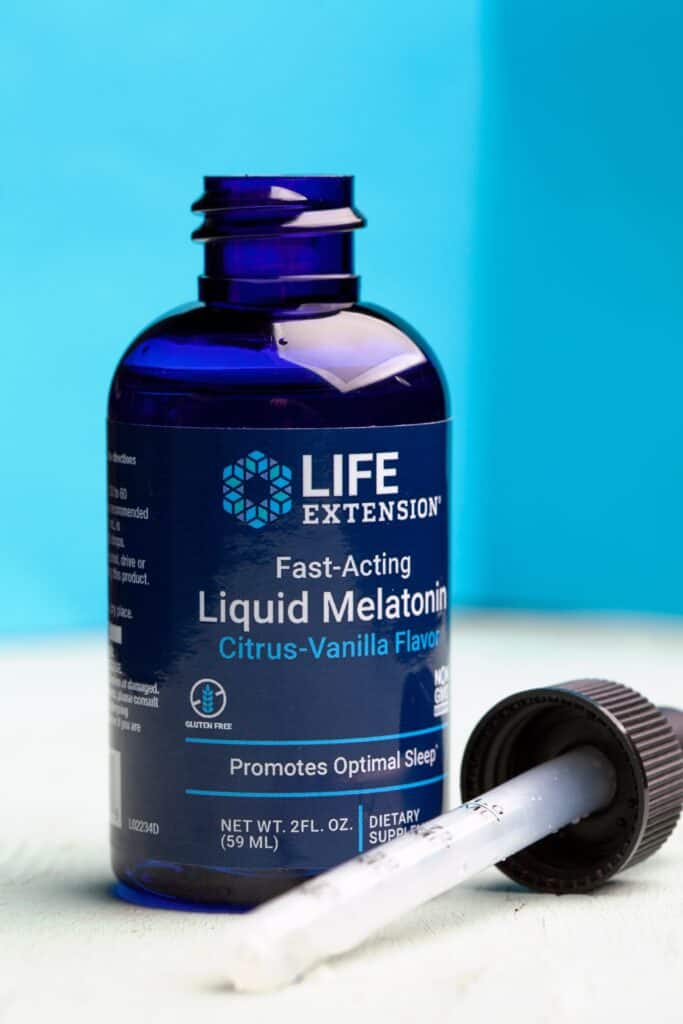Many pet parents worry about the stress and anxiety that their dogs experience during certain situations. Giving melatonin can relieve these symptoms and improve your dog’s general mood. Of course, you need to talk to your vet about it first.
What does giving melatonin to your dog entail? Let us review these questions and understand what you need to know about this supplement for your dog.
Risk Factors and Side Effects of Giving Your Dog Melatonin
A trip to the vet can determine if your fur baby is allergic to melatonin. Your vet will not recommend the implant form of this supplement to sexually immature or pregnant dogs. You will need caution in giving oral melatonin to lactating or pregnant animals. The risk factors for giving melatonin to dogs are still unknown.
The side effects of melatonin in dogs are rare. These include increased heart rate, fertility changes, stomach cramps, gastric upset, confusion, and itching. Weight gain and sleepiness are also possible side effects. Your vet can tell you whether melatonin is a good option for your dog. Melatonin’s effects can last up to a day. Kidney or liver disease may lengthen the effects.

Possible side-effects of giving melatonin to your dog include increased heart rate, stomach cramps, and fertility changes.
©Kuznetsov Alexey/Shutterstock.com
Are There Drug Interactions?
Your vet can fill you in on the medications you must use with caution with melatonin. Estradiol and cortisol levels could be lower with this supplement. Practice caution if you need to give your dog warfarin, benzodiazepines, or succinylcholine. Any other supplements, vitamins, or herbal therapies could also interact with melatonin.
What Is the Proper Melatonin Dosage for Dogs?
It is important to consult your veterinarian before giving your dog melatonin. Your vet may want a specific brand for your dog. Pet parents like you cannot stand seeing their dogs filled with anxiety, stress, or fear. Your vet can provide a dosage that is enough to keep your dog calm.
Every dog has unique needs and physical traits. Your vet may give small doses of melatonin at first. Then, the dosage will increase gradually if your dog needs it. The amount of melatonin that your dog needs will depend on your dog’s size. A milligram will be good for a dog that weighs below 10 pounds. A dog weighing 10-25 pounds can have 1.5 milligrams. Dogs that weigh 26-100 pounds will receive 3 milligrams. If your dog weighs at least 100 pounds, a melatonin dosage of 3 milligrams to 6 milligrams will be needed. Three times a day is the maximum frequency for these dosages.
Your vet can give melatonin in the liquid, capsule, tablet, and powder forms. Chewable melatonin supplements are also available, but you need to tell your vet about them first. Melatonin will start working 10-15 minutes after giving it to your dog. The effects will last for almost eight hours if the dog takes the right dose. You should give melatonin right away before bed. This will ensure that your dog gets a full evening of sleep.

Melatonin can come in liquid, tablet, capsule, and powder forms.
©OKcamera/Shutterstock.com
What Can Melatonin Do for Your Dog?
Humans and dogs can take melatonin, which is a natural substance. Your vet may recommend it to treat some conditions. You can discuss melatonin during your pet’s checkup. Below are some issues that melatonin can improve:
Anxiety
A fearful dog can calm down with melatonin. Serotonin is the body’s feel-good hormone. It can improve your dog’s mood. This hormone can also help the body produce melatonin. Events like thunderstorms, fireworks shows, and attacks of separation anxiety can cause stress in dogs.
Insomnia
Lack of sleep in your dog can deprive you of sleep as well. Your dog may become restless all night because of canine insomnia. Panting, whining, and moving around the house will be constant. This may likely prevent you from having a good night’s sleep as well.
The effects of canine insomnia can also manifest during the day. Your dog may be sluggish, disoriented, and sleepier during waking hours. Giving your dog melatonin for bedtime can give your dog restful sleep and better health.
Weak Immunity
Studies show that many avian and mammalian species have melatonin receptors. This substance can occur in immune cells and various organs. This means that your dog is capable of using melatonin to reinforce its immunity. Taking melatonin can help older dogs and canines with weakened immune systems.
Vulnerable Vital Organs
Research shows that melatonin can also protect many of your dog’s vital organs. The kidneys and liver can deteriorate because of the toxins that your dog ingests. Heavy metals, pesticides, and chemicals can enter your dog’s body every day. Melatonin can help protect and fortify your kidneys and liver. It can prevent cell death and reduce inflammation. This supplement can prevent toxin buildup and support mitochondrial death.
Melatonin can protect the lungs from pathogens, oxidative injury, and inflammation. It has a potent immune and antioxidant modulator. This supplement can also penetrate the blood-brain barrier. Melatonin’s ability to protect nerve cells can help shield the brain as well. Your vet can prescribe this supplement to reduce any brain damage from different stressors, such as injuries.
Oxidative stress can cause cardiovascular damage. This raises blood pressure, fibrosis, and heart failure. Melatonin can prevent these health consequences, improving your dog’s general health. Studies show that this substance can also help protect your dog’s thyroid gland.
Canine Cognitive Dysfunction (CCD)
Older dogs tend to suffer from this condition. CCD may experience pacing, panting, and sleep disruption at night. Confusion and disorientation are two of the symptoms of this condition. Other strange behaviors include frequent accidents inside the house.
Your vet can prescribe melatonin to dogs with CCD. This supplement can regulate the sleep-wake cycle so that your senior canine can have a restful sleep. Dogs with CCD can also become anxious easily. Melatonin can calm senior dogs, allowing them to enjoy their time with you. Supplementing your older dog’s health with melatonin can also counter the depletion of this substance due to aging.
Hair Loss
If your dog experiences seasonal alopecia or hair loss, melatonin can help. A dog can experience hair loss on the back and flanks. Alopecia is a common condition in the spring. This may be a result of a lack of sunlight during winter. Melatonin can help treat this condition. This supplement can stimulate the growth of thick coats.

Melatonin is a possible treatment for alopecia in dogs.
©Todorean-Gabriel/Shutterstock.com
What Are the Other Benefits of Melatonin?
Research shows a regular supplement of melatonin can help animals develop thicker bones and higher bone mass. The animals that participated in the study also gained a significant collagen scaffold, which supports bone building. Those that were given melatonin supplements developed stronger, more durable bones. Melatonin can also help treat heavy metal chelation and stress. Its anti-aging properties can help slow down the aging process.
Dogs with cancer go through grueling chemotherapy. This treatment can be hard on a dog’s body, causing terrible side effects like loss of appetite. Melatonin can help relieve chemo side effects. Studies show that this supplement can even help these dogs regain their normal weight by stimulating their appetite. Dogs with Cushing’s disease can also benefit from melatonin by lowering cortisol levels.
Is Giving Melatonin to Your Dog a Safe Option?
Most vets recommend melatonin for dogs. The side effects that your dog can get from this supplement are not serious at all. The most common one is sleepiness or low energy when waking up the next morning. You and your vet can choose melatonin without xylitol coatings or fillers that are toxic to dogs. Being aware of the possible drug interactions can also prevent adverse effects.
Products That Can Support Your Dog’s Melatonin Therapy
Providing your canine family member with the best melatonin for dogs can lead to desired results. Melatonin is a naturally occurring substance. It can help your dog’s health if you get the high-quality melatonin that your vet recommends. If your dog has arthritis, the best orthopedic dog beds can help your dog sleep with more comfort. Dogs with this joint condition need more cushioning and stability at the same time. Melatonin can ease the pain, stress, and discomfort, but extra joint support can make your dog feel so much better.
Summer is coming and the heat could make sleeping more difficult for your dog. Getting the best cooling dog beds can help your dog maximize the benefits of melatonin during the hot months. Anxious canines can reap the benefits of this supplement by sleeping in one of the best calming dog beds that you can get. A dog blanket can provide more comfort to your furry family member as melatonin helps improve your dog’s health.

A comfortable dog bed can help complement melatonin therapy.
©Lily Chernysheva/Shutterstock.com
Conclusion
Your dog can harvest the benefits of melatonin because of the melatonin receptors in their bodies. Speaking to your vet first before giving this supplement to your dog can prevent unnecessary side effects. Your vet can give the correct dosage based on your dog’s weight. Providing high-quality melatonin can maximize the benefits that your dog can get from the therapy. It is a naturally occurring substance. Your dog’s body can use more of it to have a better quality of life.
Up Next…
Want more resources like this one? We think you’ll like these articles as well!
The Best Melatonin for Dogs – Check out our top picks for the best melatonin supplements on the market.
The Best Calming Treats for Dogs – Melatonin isn’t the only option for curbing your dog’s anxiety. These calming treats are also a good option for stressed-out pups.
These Are the Best Dog Allergy Tests Today – If you suspect your dog has allergies, getting them tested can be a good way to find and eliminate triggers. Read our top picks for test kits here.
The photo featured at the top of this post is © Miroslava Levina/Shutterstock.com
Ready to discover the top 10 cutest dog breeds in the entire world?
How about the fastest dogs, the largest dogs and those that are -- quite frankly -- just the kindest dogs on the planet? Each day, AZ Animals sends out lists just like this to our thousands of email subscribers. And the best part? It's FREE. Join today by entering your email below.
Thank you for reading! Have some feedback for us? Contact the AZ Animals editorial team.






